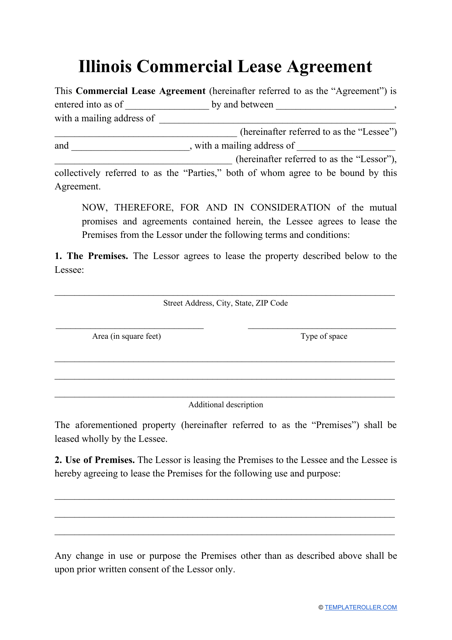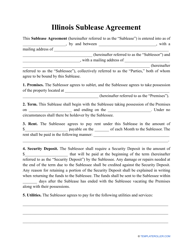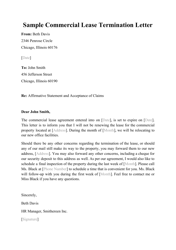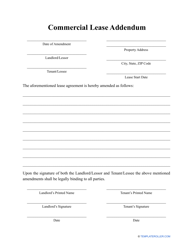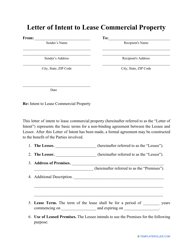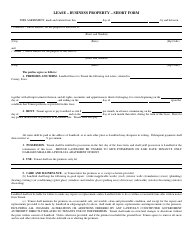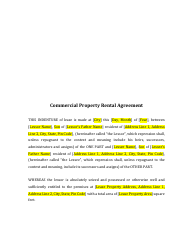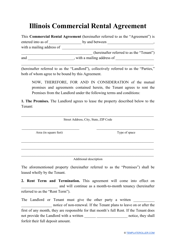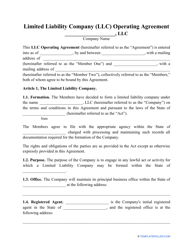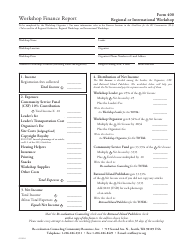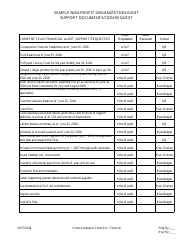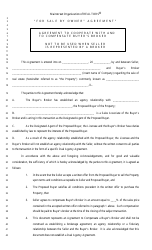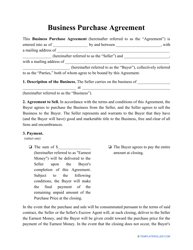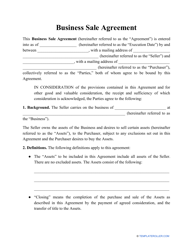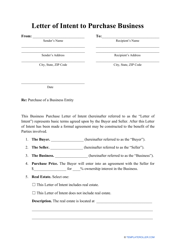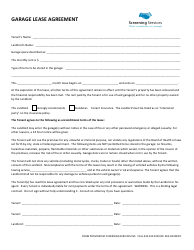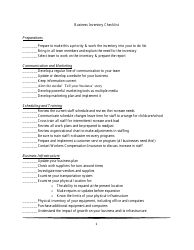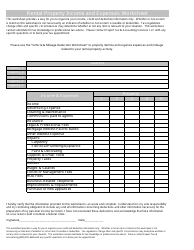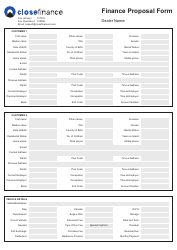Commercial Lease Agreement Template - Illinois
A Commercial Lease Agreement Template in Illinois is a standardized document that outlines the terms and conditions of leasing commercial property in the state of Illinois. It is used by landlords and tenants to establish a legal agreement regarding the rental of commercial space.
The commercial lease agreement template in Illinois is typically filed by the landlord.
FAQ
Q: What is a commercial lease agreement?
A: A commercial lease agreement is a legally binding contract between a landlord and a tenant for the renting of commercial property.
Q: What does a commercial lease agreement include?
A: A commercial lease agreement typically includes details such as the rental term, rent amount, payment terms, maintenance responsibilities, and any other specific terms relevant to the lease.
Q: Is a commercial lease agreement necessary?
A: Yes, a commercial lease agreement is necessary for both the landlord and the tenant to protect their rights and responsibilities in the rental of commercial property.
Q: Can a landlord change the terms of a commercial lease agreement?
A: Generally, a landlord cannot change the terms of a commercial lease agreement without the tenant's consent, unless specified otherwise in the lease.
Q: What happens if a tenant breaks a commercial lease agreement?
A: If a tenant breaks a commercial lease agreement, they may be responsible for penalties or damages, as outlined in the lease agreement.
Q: Can a commercial lease agreement be terminated early?
A: Usually, a commercial lease agreement cannot be terminated early unless both the landlord and the tenant agree or if there is a specific termination clause in the lease agreement.
Q: Are security deposits required for commercial lease agreements?
A: Yes, security deposits are often required for commercial lease agreements to cover any potential damages or unpaid rent.
Q: What should I do before signing a commercial lease agreement?
A: Before signing a commercial lease agreement, it is advisable to carefully review the terms, seek legal advice if needed, and negotiate any necessary changes or provisions.
